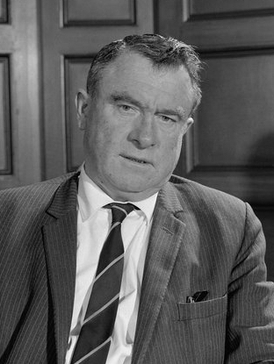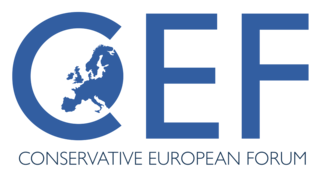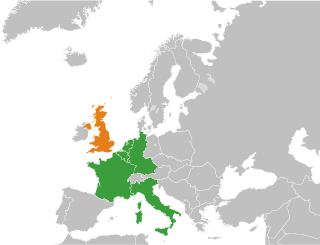Related Research Articles

The European Economic Community (EEC) was a regional organisation created by the Treaty of Rome of 1957, aiming to foster economic integration among its member states. It was subsequently renamed the European Community (EC) upon becoming integrated into the first pillar of the newly formed European Union in 1993. In the popular language, however, the singular European Community was sometimes inaccurately used in the wider sense of the plural European Communities, in spite of the latter designation covering all the three constituent entities of the first pillar.

Friends of the Earth International (FoEI) is an international network of grassroots environmental organizations in 73 countries. About half of the member groups call themselves "Friends of the Earth" in their own languages; the others use other names. The organization was founded in 1969 in San Francisco by David Brower, Donald Aitken, and Gary Soucie after Brower's split with the Sierra Club because of the latter's positive approach to nuclear energy. The founding donation of $500,000 was provided by Robert Orville Anderson, the owner of Atlantic Richfield oil company. It became an international network of organizations in 1971 with a meeting of representatives from four countries: U.S., Sweden, the UK and France.

Walter Hallstein was a German academic, diplomat and statesman who was the first president of the Commission of the European Economic Community and one of the founding fathers of the European Union.

Referendums in the United Kingdom are occasionally held at a national, regional or local level. Historically, national referendums are rare due to the long-standing principle of parliamentary sovereignty. There is no constitutional requirement to hold a national referendum for any purpose or on any issue however the UK Parliament is free to legislate through an Act of Parliament for a referendum to be held on any question at any time.
Regionalism is a political ideology that seeks to increase the political power, influence and self-determination of the people of one or more subnational regions. It focuses on the "development of a political or social system based on one or more" regions, and/or the national, normative, or economic interests of a specific region, group of regions or another subnational entity, gaining strength from or aiming to strengthen the "consciousness of and loyalty to a distinct region with a homogeneous population", similarly to nationalism. More specifically, "regionalism refers to three distinct elements: movements demanding territorial autonomy within unitary states; the organization of the central state on a regional basis for the delivery of its policies including regional development policies; political decentralization and regional autonomy".
Powellism is the name given to the political views of Conservative and Ulster Unionist politician Enoch Powell. They derive from his High Tory and libertarian outlook.
The Ulster Independence Movement was an Ulster nationalist political party founded on 17 November 1988. The group emerged from the Ulster Clubs, after a series of 15 public meetings across Northern Ireland. Led by Hugh Ross, a Presbyterian minister from Dungannon, County Tyrone, the UIC sought to end what it saw as the tyranny of rule from London and instead set up an independent Northern Ireland.

Euroscepticism in the United Kingdom is a continuum of belief ranging from the opposition to certain political policies of the European Union to the complete opposition to the United Kingdom’s membership of the European Union. It has been a significant element in the politics of the United Kingdom (UK). A 2009 Eurobarometer survey of EU citizens showed support for membership of the EU was lowest in the United Kingdom, alongside Latvia and Hungary.

Stephen Coughlan was an Irish Labour Party politician who served for sixteen years as Teachta Dála (TD) for the Limerick East constituency. During the 1930s and 40s he was a member of the Irish Republican Army but in the post-World War 2 period he moved into politics, first with the Republican Clann na Poblachta party and then later with the Labour Party. After becoming extremely politically powerful in his home of Limerick City, Coughlan was criticised as being an extremely parochial politician who jealously guarded his power base against any challenger, even those in his own party, which resulted in a number of local splits and rivalries that ultimately corroded his support. Politically and socially conservative, Coughlan was frequently at odds with the rest of the Labour party, while his "colourful" behaviour often drew national attention.

The Conservative European Forum (CEF) was founded in 1969 to promote the UK's entry into the European Economic Community. The organisation is committed to a positive and constructive approach to the UK's relationships with the democracies of Europe, including the European Union.

Charles Desmond Greaves was an English Marxist activist and historian. He wrote a number of books on Irish history as a Marxist historian. A member of the Communist Party of Great Britain, through the Connolly Association he was one of the key figures, along with Roy Johnston, responsible for inserting Marxist perspectives into the 1960s Irish republicanism, in relation to the Northern Ireland civil rights movement.
Raymond Dominick Crotty was an Irish economist, writer, academic and farmer, who was known for his opposition to Ireland's membership of the European Union.
The National Platform for EU Research and Information Centre shortened to National Platform is an Irish Eurosceptic lobby group which campaigns against greater European Union integration, and against a Federal superstate. It is a member of the EUDemocrats - Alliance for a Europe of Democracies.
Anthony Coughlan is an Irish academic, secretary of the National Platform, and retired Senior Lecturer Emeritus in Social Policy at Trinity College, Dublin.

Michael Steed was a British psephologist, political scientist, broadcaster, activist and Liberal Democrat politician. He wrote extensively on political parties and elections.

The Union Movement (UM) was a far-right political party founded in the United Kingdom by Oswald Mosley. Before the Second World War, Mosley's British Union of Fascists (BUF) had wanted to concentrate trade within the British Empire, but the Union Movement attempted to stress the importance of developing a European nationalism, rather than a narrower country-based nationalism. That has caused the UM to be characterised as an attempt by Mosley to start again in his political life by embracing more democratic and international policies than those with which he had previously been associated. The UM has been described as post-fascist by former members such as Robert Edwards, the founder of the pro-Mosley European Action, a British pressure group and monthly newspaper.

The Treaty of Accession 1972 was the international agreement which provided for the accession of Denmark, Ireland, Norway and the United Kingdom to the European Communities. Norway did not ratify the treaty after it was rejected in a referendum held in September 1972. The treaty was ratified by Denmark, Ireland and the United Kingdom who became EC member states on 1 January 1973 when the treaty entered into force. The treaty remains an integral part of the constitutional basis of the European Union.

The accession of the United Kingdom to the European Communities (EC) – the collective term for the European Coal and Steel Community (ECSC), the European Economic Community (EEC) and the European Atomic Energy Community (EAEC) – took effect on 1 January 1973. This followed ratification of the Accession treaty which was signed in Brussels on 22 January 1972 by the Conservative prime minister Edward Heath, who had pursued the UK's application to the EEC since the late 1950s. The ECSC and EEC would later be integrated into the European Union under the Maastricht and Lisbon treaties in the early 1990s and mid-2000s.

A Question of Europe was a televised debate of the Oxford Union held on 3 June 1975. The debate was held two days before the 1975 referendum, in which the electorate were asked if Britain should remain a member of the European Economic Community (EEC) which it had joined in 1973. The statement debated was "that this House would say yes to Europe". Former prime minister Edward Heath and the leader of the Liberal Party Jeremy Thorpe spoke in favour of the motion and Labour ministers Barbara Castle and Peter Shore spoke against it. Heath judged that the audience were largely in favour of the motion anyway and in the vote after the debate, the statement was approved by 493 votes to 92. The debate was broadcast live on BBC1 with an introduction by Robin Day and Ludovic Kennedy; at the end of the programme David Dimbleby provided an update on other developments in the referendum campaign. The result of the 5 June referendum was 67% in favour of remaining within the EEC.
The Liberal Party of Ireland, sometimes also referred to as the Irish Liberal Party, was a minor political party in Ireland, formed in 1967 and lasting briefly until roughly 1969.